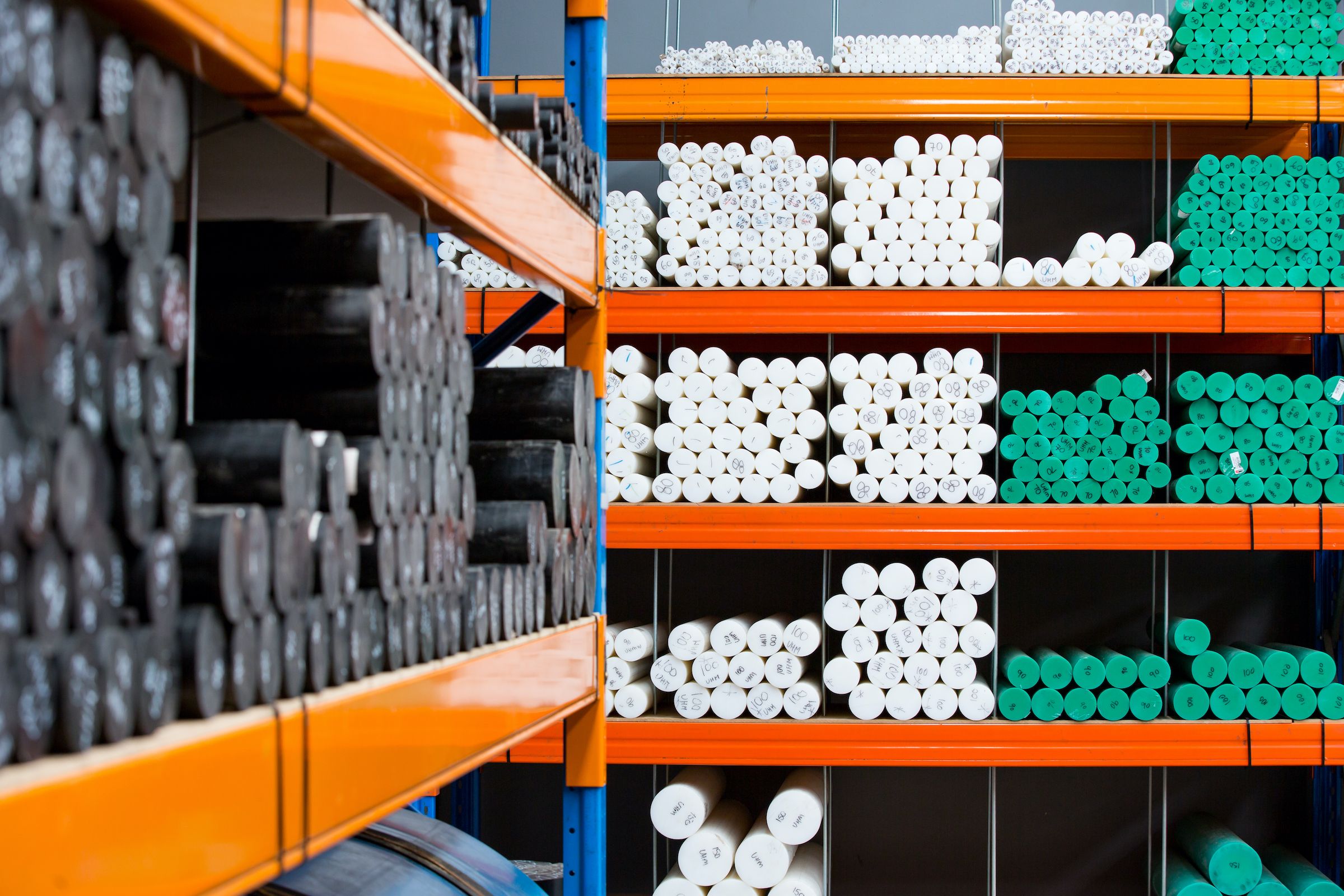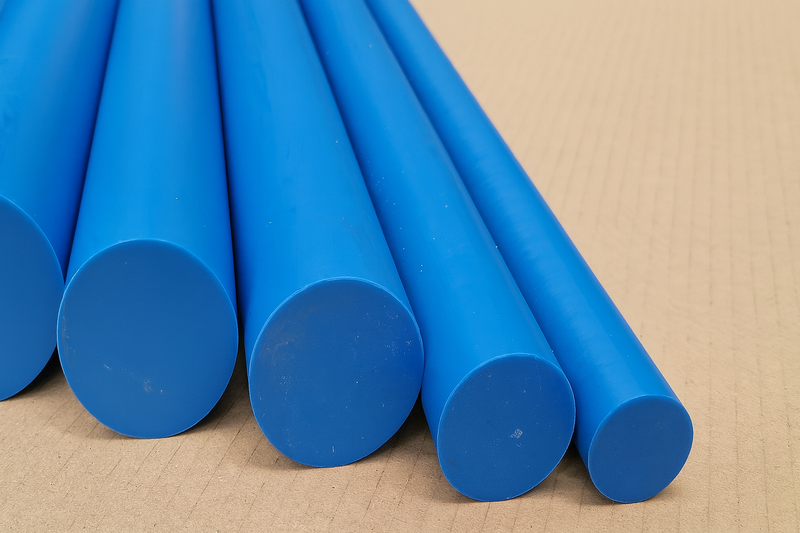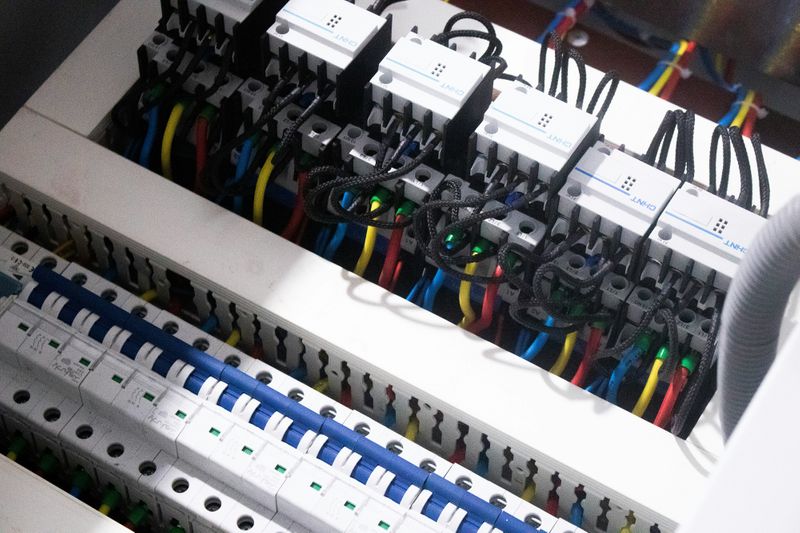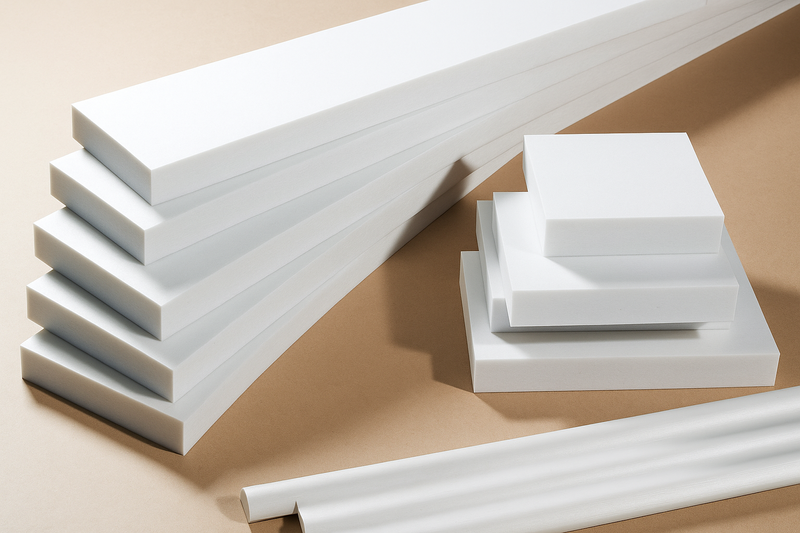At a glance
- Discover the future of engineering plastic procurement with Cast Nylon
- Choosing between cast nylon and metals depends on the application's specific needs, highlighting the significance of material selection
- Versatile suitability spans various industries like automotive, machinery, consumer goods, and more.
In the world of engineering and industrial applications, material selection plays a pivotal role in determining the success and efficiency of a project. From robust machinery components to intricate consumer goods, the choice between materials can significantly impact performance, durability, and overall cost-effectiveness.
This article delves into the comparison between cast nylon and metal, two prominent materials, each with its own set of advantages and disadvantages. By exploring the unique properties and characteristics of these materials, we aim to assist readers in making informed decisions when selecting the ideal material for their diverse applications.
Understanding Cast Nylon and Metals
Before we dive into the comparison, let's first establish a solid foundation by understanding what cast nylon and metals are.
Cast Nylon
Cast nylon, also known as cast polyamide, is a synthetic polymer material derived from the family of polyamides. It is produced by melting solid nylon pellets or powder and then casting the molten material into moulds to form complex shapes. Also, Cast nylon sheets boasts exceptional properties, making it an attractive choice for various applications. Some of the unique properties of Cast Nylon include:
Wear Resistance:
Cast nylon exhibits exceptional wear resistance, making it well-suited for applications involving sliding or frictional contact. This property ensures longevity and reduced maintenance requirements for components subject to continuous movement.
Self-Lubrication:
Cast nylon has inherent self-lubricating properties due to its low coefficient of friction. This characteristic reduces the need for additional lubrication in applications where parts need to move smoothly against each other.
Low Friction:
The material's low coefficient of friction results in reduced friction between components, leading to decreased wear, energy savings, and smoother operation.
Impact Absorption:
Cast nylon can absorb impact energy, making it suitable for applications where shock or sudden impact might occur. This property contributes to increased component durability and reduced risk of damage.
Noise Dampening:
Cast nylon's ability to dampen noise and vibrations is advantageous in applications where quiet operation is essential, contributing to improved user experience and reduced noise pollution.
Corrosion Resistance:
Unlike metals, cast nylon is not susceptible to rust or corrosion, making it ideal for environments where exposure to moisture or harsh chemicals is a concern.
Lightweight:
Cast nylon is relatively lightweight compared to many metals, which can be advantageous for applications where weight reduction is important for efficiency or ease of handling.
Dimensional Stability:
Cast nylon has low moisture absorption, leading to better dimensional stability over time. This property ensures that components retain their shape and performance characteristics in varying environmental conditions.
Electrical Insulation:
Cast nylon is an excellent electrical insulator, making it suitable for applications where electrical conductivity could pose a risk or interfere with desired functionality.
Chemical Resistance:
Cast nylon exhibits resistance to various chemicals, oils, and solvents, enhancing its suitability for applications where exposure to corrosive substances is possible.
Easy Machining:
Cast nylon can be easily machined, allowing for customisation and precise shaping of components to meet specific requirements.
Advantages of Cast Nylon
Mechanical Properties:
Cast nylon exhibits high tensile strength, impact resistance, and wear resistance, making it suitable for components that experience heavy loads and stress.
Chemical Resistance and Low Friction:
Cast nylon showcases excellent resistance to various chemicals, oils, and solvents, along with a low coefficient of friction. This property makes it ideal for applications involving moving parts and sliding surfaces.
Dimensional Stability and Noise Dampening:
The low moisture absorption of cast nylon contributes to its exceptional dimensional stability, making it ideal for applications where tight tolerances are essential. Additionally, its ability to dampen noise and vibrations enhances its suitability for machinery components.
Metals
Metals, on the other hand, encompass a wide range of materials, each with its own unique properties. Steel, aluminium, bronze, and other metals are commonly used in engineering applications due to their high mechanical strength, conductivity, and durability.
Advantages of Metals
Mechanical Strength and Stiffness:
Metals boast unparalleled mechanical strength and stiffness, rendering them crucial for structural components and heavy-duty machinery.
Thermal and Electrical Conductivity:
Metals exhibit high thermal and electrical conductivity, making them suitable for applications requiring heat dissipation or electrical connections.
Wide Range of Options:
The diversity of metals available, from steel to aluminium to bronze, provides engineers with a wide range of choices to meet specific requirements.
Suggested read: engineering plastic sheets and rods, and what's best for business?
Application Comparison Cast Nylon vs. Metal
One of the key factors in choosing between cast nylon and metals is understanding the specific applications where each material excels. Let's delve deeper into the applications of both materials and how they cater to different requirements:
Cast Nylon Applications
Cast nylon possesses a set of qualities that make it a prime candidate for various applications where its unique properties shine:
Gears, Bearings, and Bushings
Cast nylon's exceptional wear resistance, coupled with its low friction characteristics, makes it an excellent choice for applications involving moving parts, such as gears, bearings, and bushings. These components benefit from reduced friction, extended service life, and minimal maintenance.
Automotive Components
In the automotive industry, cast nylon finds its place in applications like suspension bushings, thrust washers, and engine mounts. Its self-lubricating properties reduce friction and contribute to quieter operation while enhancing the longevity of parts.
Consumer Goods
From conveyor rollers to various machinery components in packaging and manufacturing equipment, cast nylon's noise-dampening capabilities play a vital role in creating quieter and more efficient operations.
Metal Applications
Metals, with their inherent strength and durability, excel in applications that demand robustness and the ability to withstand extreme conditions:
Heavy Machinery and Structural Components
Metals, such as steel and aluminium, find their niche in heavy machinery and structural components. Their high mechanical strength and stiffness ensure the structural integrity of machinery and constructions under heavy loads.
Aerospace and Aviation
Metal alloys are often preferred in aerospace applications due to their strength-to-weight ratio and ability to withstand the rigors of flight, varying temperatures, and high-stress environments.
Construction and Infrastructure
From bridges to skyscrapers, metals like steel are essential in construction projects where durability, load-bearing capacity, and resistance to environmental factors are paramount.
Tailoring to Requirements
The choice between cast nylon sheets and metals hinges on the specific needs of an application, emphasising the importance of selecting the right material for the task at hand.
Weight Reduction
Cast nylon is significantly lighter than most metals, making it an ideal choice for applications where weight reduction is important. This advantage contributes to improved fuel efficiency in transportation and reduced overall system weight.
Wear Resistance
Cast nylon's exceptional wear resistance makes it suitable for applications involving sliding or rotational movements. It can withstand abrasion and wear, resulting in longer component lifetimes and reduced replacement costs.
Noise Dampening
Cast nylon's ability to dampen noise and vibrations is beneficial in applications where noise reduction is essential for user comfort and operational efficiency. This attribute proves notably beneficial for machinery and equipment.
Corrosion Resistance
Unlike metals, cast nylon is not susceptible to corrosion or rust. This property makes it suitable for applications in corrosive environments or where exposure to chemicals and moisture is a concern.
Chemical Resistance
Cast nylon exhibits resistance to various chemicals, oils, and solvents, making it a preferred choice for applications that involve exposure to aggressive substances.
Dimensional Stability
Cast nylon has low moisture absorption, ensuring better dimensional stability over time. Components made from cast nylon maintain their shape and performance characteristics even in changing environmental conditions.
Machinability
Cast nylon is easy to machine and shape, allowing for customisation and precise fabrication of complex parts. This property simplifies the manufacturing process and enables the creation of intricate designs.
Thermal Insulation
Cast nylon offers better thermal insulation compared to metals. This makes it suitable for applications where heat transfer needs to be minimised, preventing heat-related issues in machinery or equipment.
Electrical Insulation
Cast nylon is an excellent electrical insulator, making it suitable for applications where electrical conductivity could interfere with desired functionality or pose safety risks.
Cost-Effectiveness
In many cases, cast nylon can be more cost-effective than certain metals, considering factors such as material cost, processing ease, and reduced maintenance requirements.
These advantages position cast nylon as a versatile material that can excel in various applications across industries, offering innovative solutions and improved performance compared to traditional metal alternatives.
As we've explored the attributes of cast nylon and its application advantages over metals, a clear picture emerges of the undeniable superiority of cast nylon in various industrial and engineering contexts. Cast nylon's unique combination of properties, ranging from wear resistance and self-lubrication to noise dampening and corrosion resistance, positions it as a material of exceptional value.
The material's versatile suitability extends across diverse applications, including automotive components, machinery parts, consumer goods, and more. Cast nylon's ability to enhance performance, reduce operational costs, and create quieter, more efficient environments solidifies its position as the material of choice for modern engineering challenges.
In a world where innovation and efficiency are key drivers, cast nylon represents a ground breaking solution that empowers industries to achieve new levels of success. By embracing cast nylon's superior qualities, we pave the way for advancements in design, durability, and sustainability across a spectrum of applications, ultimately shaping a future where excellence and ingenuity thrive.
Visit ePol today to experience the future of engineering plastic procurement in Australia. With a commitment to innovation, customer satisfaction, and industry excellence, ePol is your gateway to accessing high-quality materials and solutions that drive your success forward. Embrace the superior capabilities of cast nylon and partner with ePol to shape a future where engineering innovation knows no bounds.








